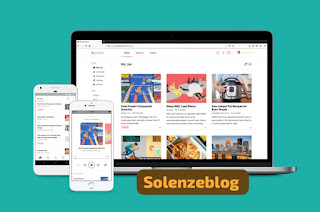End of an Era for the Popular Read-It-Later App
Mozilla has announced that it will shut down Pocket, its widely used read-it-later app, on July 8, 2025. Users will have until October 8, 2025, to export their saved content before all data is permanently deleted. The decision reflects Mozilla's strategic shift to focus more on its core browser, Firefox, and to invest in emerging technologies like AI-powered features .
A Look Back at Pocket's Journey
Originally launched in 2007 as "Read It Later," Pocket allowed users to save articles, videos, and web pages for later consumption. Mozilla acquired the service in 2017 and integrated it into Firefox, enhancing users' ability to discover and save content seamlessly .
Despite its popularity, Mozilla cited evolving user habits as a reason for discontinuing Pocket. The company stated that the way people save and consume content on the web has changed, prompting a reallocation of resources to projects that better align with current browsing behaviors .
What Users Need to Know
Shutdown Date: Pocket will cease operations on July 8, 2025.
Data Export: Users can export their saved items until October 8, 2025, after which all data will be deleted.
App Availability: As of May 22, 2025, the Pocket app and browser extensions have been removed from app stores. Users who previously installed the app can re-download it until the data deletion date .
Premium Subscribers: Annual subscriptions will be automatically canceled on July 8, with prorated refunds issued.
Additionally, Mozilla is discontinuing Fakespot, its AI-based fake review detection tool acquired in 2023. The Firefox-integrated Review Checker will end on June 10, 2025 .
Conclusion
The discontinuation of Pocket marks the end of a significant chapter in Mozilla's history. As the company pivots to focus on enhancing Firefox and developing new AI-driven features, users are encouraged to export their Pocket data promptly. While Pocket's shutdown may disappoint its loyal user base, Mozilla's commitment to evolving with user needs suggests a future of innovative tools aimed at improving the browsing experience.










